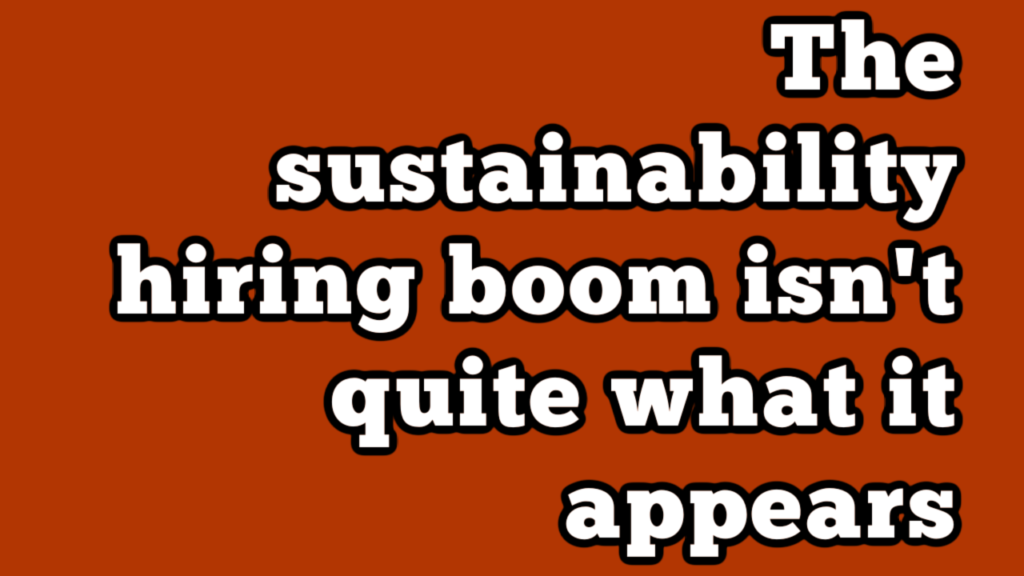The sustainability hiring boom isn’t quite what it appears

I’ve blogged a number of times about hiring ESG talent (here’s the latest). Here’s a note from Alison Taylor on the topic:
Here’s a great piece in GreenBiz Group from Prerana Tirodkar, on why the sustainability hiring boom is not quite what it appears: “In fact, looking for a job in sustainability is about as much fun as trying to find love on a dating app, or a decent apartment in New York. Exaggeration and spin combine with inflated expectations and the result is a lot of frustration.
There are clearly tons of smart young business graduates who want to do something more with their skills than just make a living. They want to transform companies from the inside, and they’ve been told over and over again about the power of the private sector to solve environmental and social problems. I talk to them all the time, and the advice I always give to focus sharply on POWER closes out this article:
“Everybody who wants to work in sustainability should be cautious about a job that’s called a ‘sustainability’ job…. We lack clarity on what skills qualify as sustainable. It can mean different things in different sectors, industries and geographies. For example, it could mean working in marketing, program management, risk advisory or being an environmental engineer, a human rights lawyer or a climate expert.”
When evaluating suitable career pathways, it’s essential to understand a company and industry’s core materiality issues and sustainability priorities. Traditionally, sustainability teams have been housed under a company’s corporate responsibility, communications and marketing, or investor relations function. Putting sustainability under these umbrellas has brought criticisms of greenwashing, so looking for a sustainability role in the core-business function or operations department of a company can help identify high-impact opportunities.
Ask questions such as: Where does the sustainability department sit? What is the seniority of the chief sustainability officer? How does the department work with the rest of the organization? “It’s important to be critical. Look for influence, budget and power,” Taylor said.
